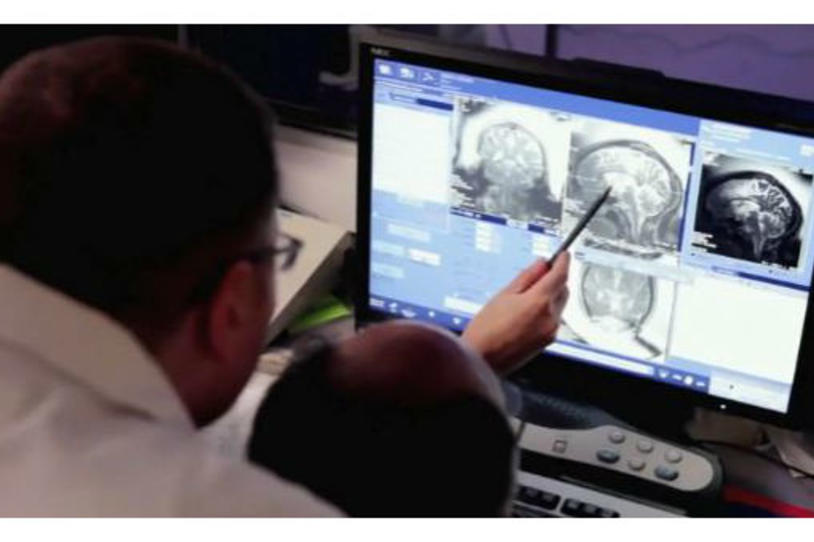
Researchers pinpoint where to direct the focused ultrasound using magnetic resonance imaging (MRI). Image courtesy BBC video.
An international, multi-site clinical trial testing the safety and efficacy of focused ultrasound to treat dyskinesia in Parkinson’s disease (PD) has enrolled its first patient.
The Michael J. Fox Foundation and the Focused Ultrasound Foundation are funding the study of using focused ultrasound — a non-invasive technology — to ablate a small volume of the globus pallidus region of the brain to reduce dyskinesia. While the procedure requires no surgery and is more easily tolerated than alternatives such as deep brain stimulation, it is irreversible.
“Focused ultrasound to treat dyskinesia may be a great improvement in the treatment options offered to Parkinson’s patients,” said Neal Kassell, MD, chairman of the Focused Ultrasound Foundation. “However, since the procedure cannot be reversed, if our studies are successful, we recommend that patients discuss and consider this option thoroughly with their physicians and loved ones.”
Long-term use of levodopa (the gold standard medication for PD motor symptoms) can lead to involuntary movements called dyskinesias. By destroying abnormal cells in the globus pallidus, which regulates movement, researchers hope to drastically lessen or eliminate dyskinesia in patients who suffer from this side effect.
A total of 20 Parkinson’s patients with dyskinesia will be enrolled and treated, divided over three international sites. Researchers will use magnetic resonance imaging (MRI) technology to focus multiple intersecting beams of ultrasound energy with high precision and accuracy on target cells in the brain. The energy will heat and destroy the abnormal cells without harming adjacent tissue.
The first patient was enrolled at Yonsei University Severance Hospital in Seoul, Korea, and the study hopes to enroll patients at other clinical sites yet to be determined in the United States and/or Canada.
“We were able to carefully target the treatment, and the patient’s symptoms and condition improved during the procedure without serious side effects,” said Jin Woo Chang, MD, PhD, who performed the procedure. “We will continue to monitor the patient to assess the durability of the treatment benefits.”
Learn more about this clinical trial.
The Focused Ultrasound Foundation is also testing this treatment method in Parkinson’s patients with severe tremor. BBC followed a patient through the procedure at the University of Virginia for a video they released in October 2013.
